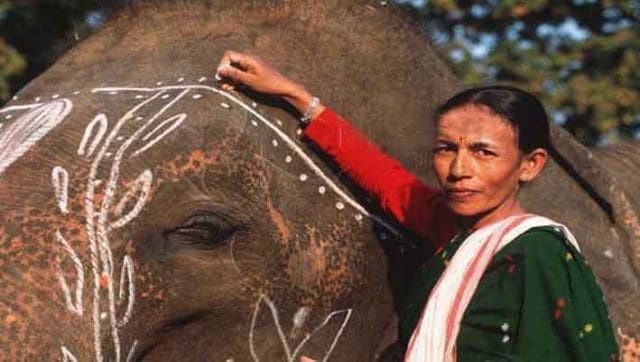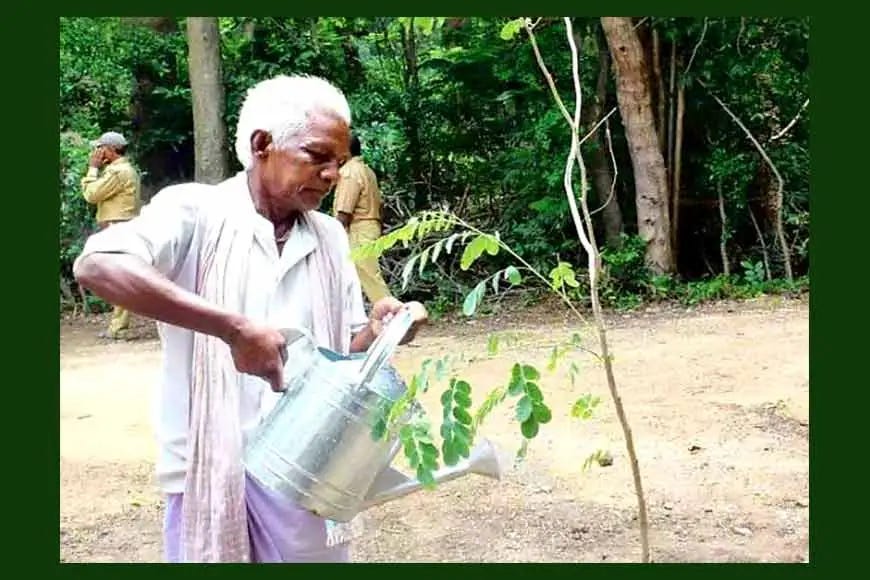Fridays for Future #03
Ground Report is free, providing valuable environmental news and insights. If you’ve found our content useful, we kindly ask you to consider upgrading your subscription.
Hi everyone! I'm back, Wahid Bhat, and today is no ordinary day—it's India's 75th Republic Day, a celebration of freedom, resilience, and the incredible spirit that defines our great nation.
On the occasion of India’s Republic Day, a day that holds immense pride and honor for every Indian, I wanted to share something special with you. It’s a tradition in India to award the Padma Shri, the fourth highest civilian award, to individuals who have made significant contributions to society. This year, the awards have a special focus on those who have dedicated their lives to environmental conservation.

These unsung heroes, often hailing from remote regions of India, have been silently shaping the narrative of our diverse and vibrant country through their tireless efforts. Their stories are not just inspiring, but they also remind us of the power of individual action in creating a sustainable future.
On this momentous occasion, I'm thrilled to share something special with you—a glimpse into the extraordinary lives of three unsung heroes who've quietly shaped the narrative of our diverse and vibrant country.
Parbati Baruah: The Trailblazing Daughter of Elephants
Imagine a life intricately woven with the majestic tales of elephants—the gentle giants who've roamed our lands for centuries. Parbati Baruah, lovingly called "Hastir Kanya" (daughter of elephant), embodies this vision.
Today, I want to take you on a journey into the world of India's first female Mahout, a distinction that earned her the prestigious Padma Shri. Born in 1954, her story is a tapestry of dedication, compassion, and a relentless commitment to the conservation of these magnificent creatures.
She became famous after the BBC made a documentary about her life called “Queen of the Elephants”. She lives in Guwahati and is a member of the Asian Elephant Specialist Group, IUCN. She’s also the sister of Pratima Barua Pandey and niece of filmmaker Pramathesh Barua.
Parbati was one of nine children born to Prakritish Barua, the last Rajah of Gauripur. She developed a deep understanding and interest in elephants from a young age, often accompanying her father on trips to the jungle. Her father, a skilled hunter with a deep understanding of elephants, had 40 elephants in his royal stables. Read More about her life
Dukhu Majhi: The Tree Grandfather
Now, let's delve into the inspiring tale of Dukhu Majhi, affectionately known as 'Gachha Dadu' (Tree Grandfather). Born in Purulia, West Bengal, Dukhu has planted over 5,000 trees, transforming barren lands into green havens.
His journey, though humble, is a testament to the profound impact one person can have on the environment. Join me in exploring the life of this tribal environmentalist, a true steward of Mother Earth, as we unravel the intricacies of his tree-planting campaign.
78-year-old Majhi shared that he has been planting saplings since he was a child, following in his father’s footsteps. Despite living in a simple thatched hut with his family and doing odd jobs for a living, Majhi plants a sapling every day. He believes that if everyone contributes like this, the world would be a better place with more shade and oxygen, leading to a healthier life.
Majhi has planted thousands of trees in Purulia, a district in Bengal, known for its challenging terrain with barren and parched land. The documentary “Dukhu Majhi: Son of the barren land,” directed by Somnath Mondal, won a National Film Award in the best biographical category. Mondal discovered Majhi in 2018 and was impressed by his innovative approach to protecting saplings, which had gained him recognition in the local community. Read More about his life
Chami Murmu: The Lady Tarzan of Jharkhand
Last but certainly not least, let's meet Chami Murmu, a formidable climate warrior from Jharkhand. At 52, Chami has inspired hundreds of women in her region to plant trees across 500 villages, despite facing opposition.
Through her NGO, Sahyogi Mahila, she has initiated impactful programs focusing on community health and well-being. Her journey is a beacon of hope, proving that individual actions can lead to profound community transformations.
I feel extremely honoured to be getting the award. It gives me an impetus to keep doing what I started in 1988,” she told The Indian Express. She added, “I noticed a lot of empty land in my area and decided to plant trees. The men in my village didn’t like the idea of a woman starting this kind of project. I had disagreements at home and eventually moved to my brother’s house. There, I worked with my brother as a field laborer, earning a living while also contributing to nature”. Read More about her life
So, my friends, grab a cup of chai, settle into your favorite reading nook, and let's embark on this journey together. Today, we celebrate not just our nation's history but the living, breathing stories of those who continue to shape its future.
TOP ENVIRONMENT NEWS
January downpours, heavy snow, no snow: Diagnosing ‘warming winter syndrome’
One of the most robust measures of Earth’s changing climate is that winter is warming more quickly than other seasons. The cascade of changes it brings, including ice storms and rain in regions that were once reliably below freezing, are symptoms of what I call “warming winter syndrome.” Read More
Snowless winters will lead to extreme heatwaves in coming months
The lack of snow and rain over the western Himalayas, which has persisted from December 2023 into January 2024, could potentially lead to heat waves in March and April, followed by heavy rainfall in the pre-monsoon season over northwest India. Read More
Some animals became bigger in size and some became smaller, why?
A new study has solved the puzzle of why some animals, like Alaskan horses, certain turtles, and island lizards, have grown bigger or smaller over time.
The study found that an animal’s size changes due to two main reasons. The first is the intense competition for resources between different species. The second is the risk of extinction from environmental threats. Read More
Lack of climate services puts Asia’s aquaculture at risk: study
Currently, Asia produces more than 91 percent of the world’s aquaculture, with Bangladesh ranking fifth globally, following China, Indonesia, India, and Vietnam.
A recent study has shown that climate change could lead to a loss of around US$140 million over ten years for Asia’s aquaculture industry, especially for Bangladesh. This underlines the importance of having better climate data. Read More
Thank you for reading. Ground Report is available at no cost. If you find it beneficial, please think about upgrading your subscription to support our work. Should you wish to get in touch, you can reach us at Greport2018@gmail.com.
Wahid Bhat, signing off for now. Stay tuned for more stories that matter.
That’s all for today’s environmental news. If you found these stories interesting and want to stay updated, don’t forget to subscribe to our newsletter. You can also follow us on our social media channels for more environment-related news and updates. Follow Ground Report for Environment and Under-Reported issues in India. Connect with us on Facebook, Twitter, Koo App, Instagram, Whatsapp and YouTube. Write us on GReport2018@gmail.com.





